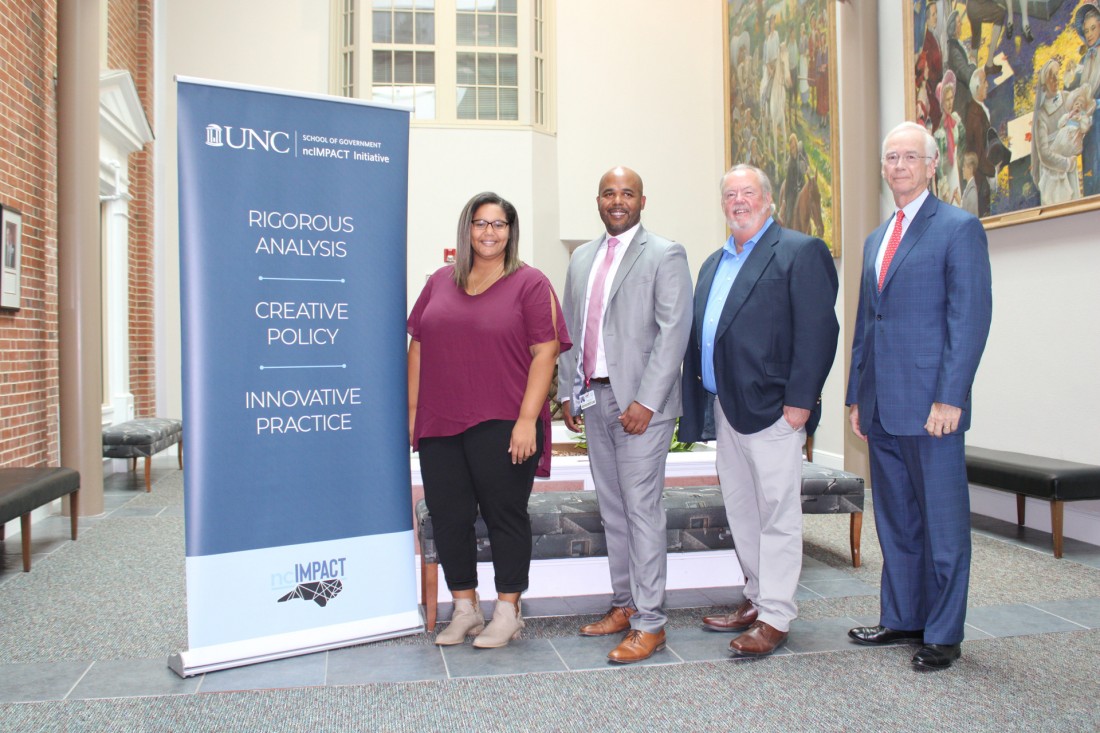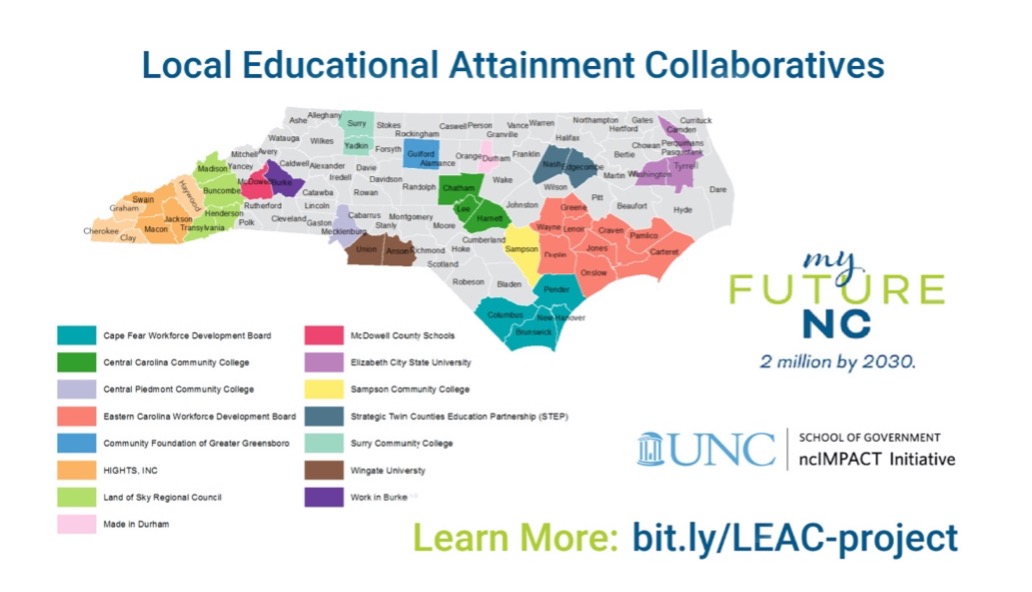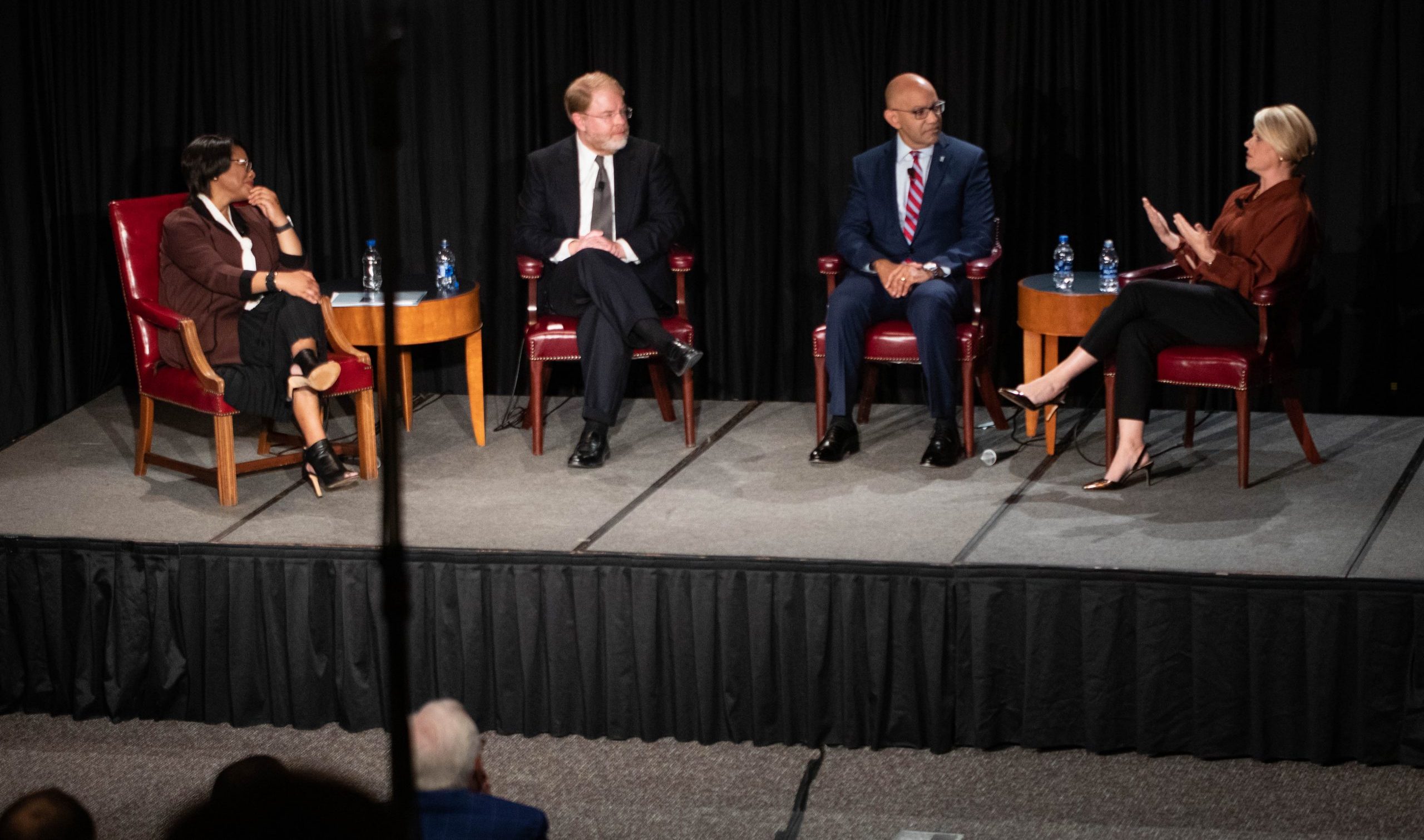Ensuring Student Success in 2021 and Beyond
North Carolina lawmakers set a goal of 2 million North Carolinians with a post-secondary degree or credential by 2030. Achieving this goal will keep the state economically competitive with an educated workforce, as well as improve economic outcomes for those with a credential. Education institutions, workforce development boards, and employers are implementing programs designed to help the state achieve this goal. Watch our PBS NC ncIMPACT Town Hall series episode on this topic by clicking the link at the end of the blog.

The Challenge
As our economy begins to recover from the shocks delivered by the COVID-19 pandemic, several trends emerge from data about which sectors and demographics are faring better than others. Sectors more reliant on technology and skilled labor recovered more quickly than those that require in-person interactions. Unemployment rates are vastly different for workers of varying educational attainment. Individuals with only a high school diploma make up nearly 40% of the working age population, but accounted for nearly 60% of the initial job losses in March 2020. These conditions resulted in a 12-percentage point increase in the unemployment rate for high school graduates, compared to a 5-percentage point increase for workers with a bachelor’s degree or more. Even pre-pandemic, almost two-thirds of open positions required some amount of post-secondary education, a percentage which is not likely to decrease.
At the same time, because of COVID-related restrictions, attainment of these credentials slowed across the state. Only 4 of North Carolina’s 58 community colleges were able to maintain or increase their enrollment from Fall 2019 to Fall 2020. Moving forward, this “skills-gap” will become a real problem for North Carolinians who have no post-secondary credentials, as more jobs require more than a high school diploma.
The Solution
Educational leaders across the state are working to help more residents obtain post-secondary credentials. The 58 community colleges in North Carolina are using federal recovery funds to help support students outside of school, so they focus on completing their academic goals. High school students who graduated in 2021 can apply for the North Carolina Longleaf Commitment Grant to have their tuition and fees covered at any community college in the state for two years. The Better Skills, Better Jobs program helps identify and reconnect adult learners previously associated with select community colleges. Students who choose to re-enroll to complete a credential are given guidance and support as they re-learn how to navigate the system.
Across the state, workforce development boards work to coordinate planning and implementation of programs designed to increase workforce participation. Each of the 23 boards are made up of community leaders, typically those with strong business or industry ties, appointed by relevant elected officials. Boards typically seek to serve a variety of residents, from adults looking to begin a new career path to graduating students seeking to start strong in a career out of high school. One such board, GuilfordWorks, runs a program to help opportunity youth and other young adults to build the skills necessary to begin their careers. Those interested can contact the board to gain access to career counseling, resume building, and occupation skills training services.
The Players
Many other key organizations from the private and public sectors are working to help boost educational attainment in the state. Collaboration between the North Carolina Community College System and the NC Department of Public Instruction gets more community college representatives into high school classrooms to promote the benefits of a community college education to students who may not be aware otherwise. They are also working with the UNC System to create a smoother transition between community colleges and universities for students pursuing degrees such as nursing and teaching. Standardization of course numberings across the community college and university systems could help students more easily transfer between colleges or to a university, taking their credits with them. Employers such as Bank of America and Cummins Inc. provide apprenticeships and jobs for students who complete a post-secondary credential.
The Promise
The bipartisan HB664 was signed into law in 2019, setting an official goal of having 2 million residents ages 25 to 44 with a postsecondary degree or credential by 2030. The ncIMPACT Initiative and myFutureNC are working with 15 Local Educational Attainment Collaboratives across the state to help them increase postsecondary attainment in their communities. Many state leaders are optimistic North Carolina can achieve this goal and employ more young people in skilled jobs. At the ncIMPACT Student Success Town Hall Event on October 28, Charles Bowman, president of Bank of America NC, had this to say about North Carolina’s future: “We have a tremendous foundation to do anything we want to do. We’ve got great universities, and there aren’t many states in the country that have the wealth of higher education that we have. … I think overall, I couldn’t be more thrilled to live in North Carolina because I think we’ve got a better opportunity than almost any state in America to go farther than we’ve ever been.”
The Town Hall
Watch our PBS NC ncIMPACT Town Hall series on this topic and more by clicking this link.



